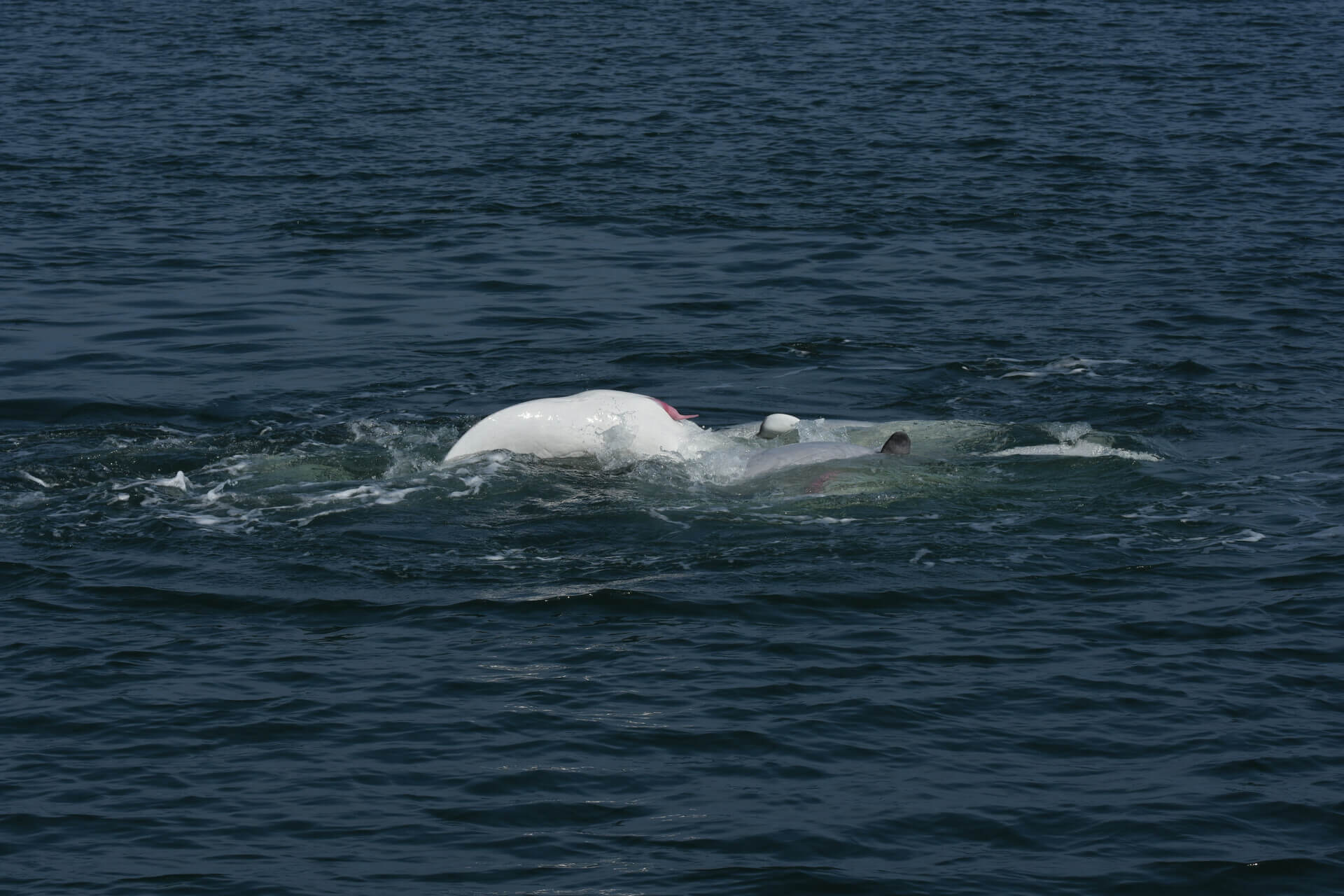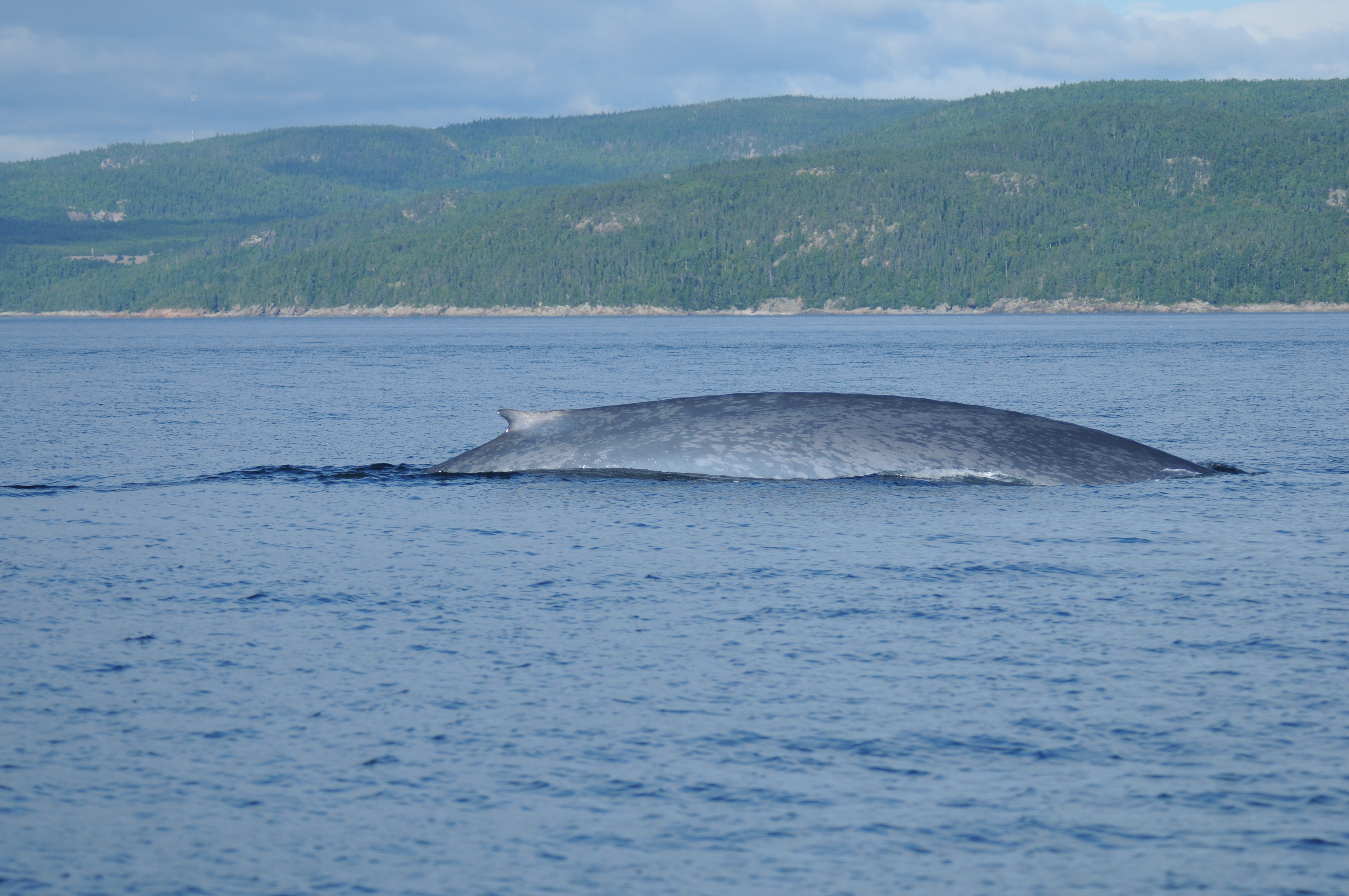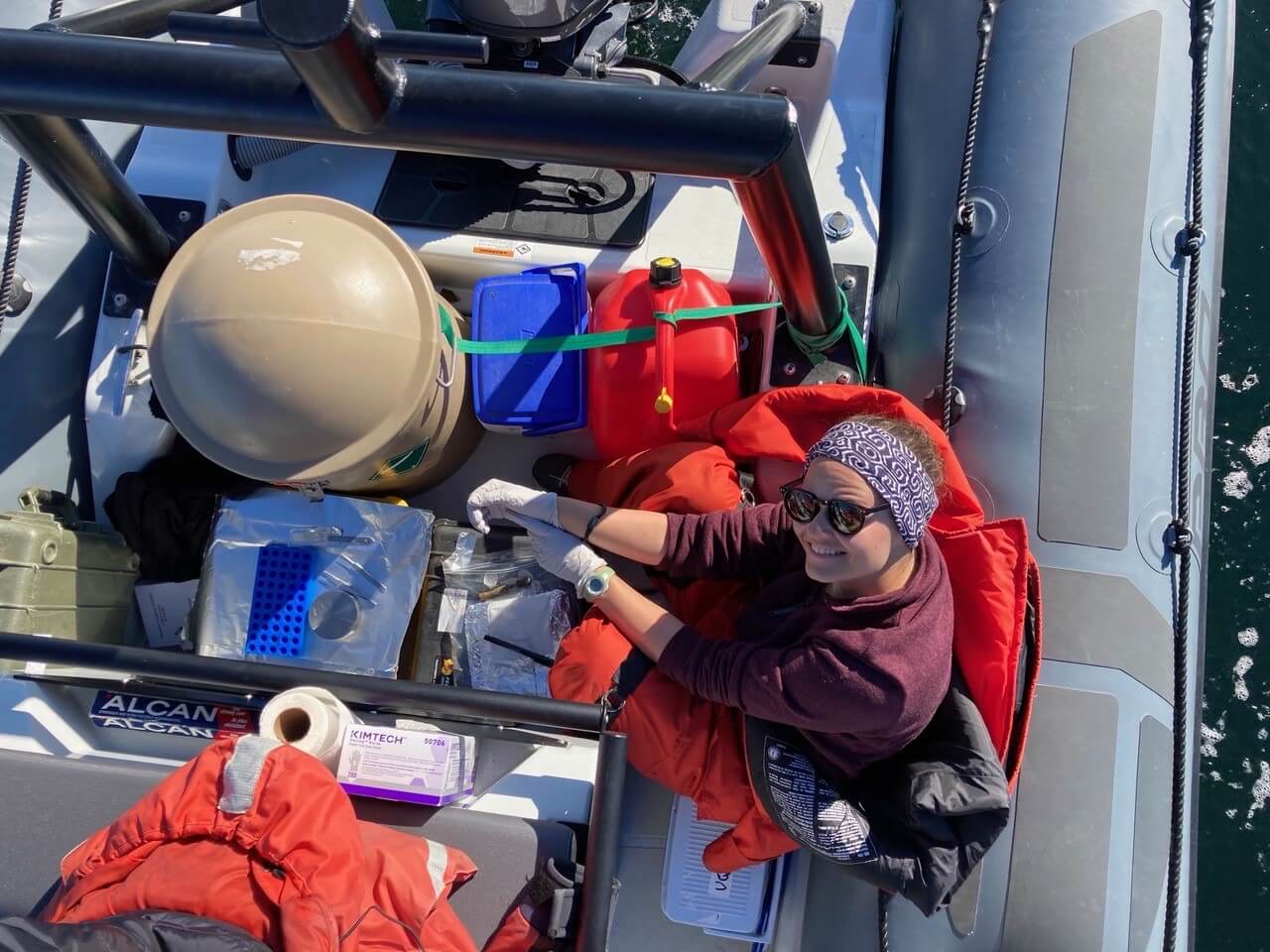A number of observations of right whales have been reported throughout the summer at various locations in the Gulf of St. Lawrence. To document their presence, M – Expertise Marine and ÉcoMaris are teaming up and proposing an expedition in the Gaspé aboard the sailboat Roter Sand on a survey mission conducted in collaboration with experts from US-based NOAA and the New England Aquarium (team of researcher Moira Brown). From August 15 to 22, a group of researchers is on board the boat, which set sail from the town of Gaspé for the southern coasts of the Gaspé Peninsula and Chaleur Bay. The team notably performs transects to learn more on the presence and distribution of whales and conducts photo-identification of the individuals that it encounters. Interns joined the team on board to learn about whale research and conservation, and especially to discover the North Atlantic right whale, a special status cetacean.
Indeed, the North Atlantic right whale is an endangered species. Decimated by whaling, the population numbered only slightly over 300 individuals a few decades ago. After years of good recruitment, this population is now estimated at about 500 individuals. However, it remains one of the most precarious populations worldwide. Each year, right whales migrate to the warm waters of Florida and Georgia to breed, and come to our latitudes in the summer for intensive feeding. “60% of the individuals of this small population are known to visit the Bay of Fundy in summer. But where are the others? Chaleur Bay and the southern Gulf of St. Lawrence could hold the key to this mystery. We are going on a mission to find them,” explains Lyne Morissette, marine mammal ecology researcher and CEO of M – Expertise Marine and initiator of the sailing expedition in search of right whales in the Gaspé.
To learn more:
Read the press release on the expedition
About M – Expertise Marine
About ÉcoMaris





